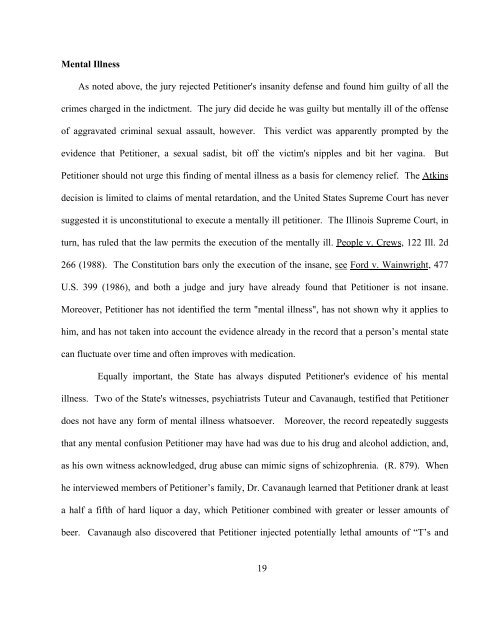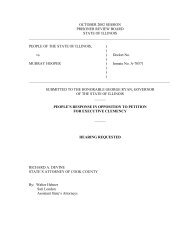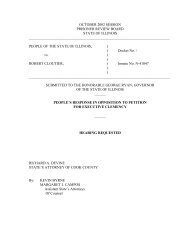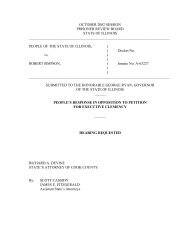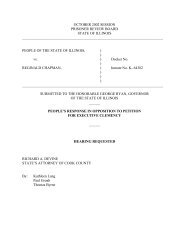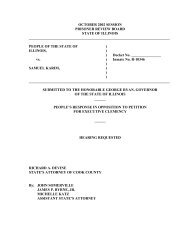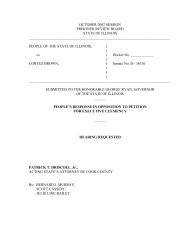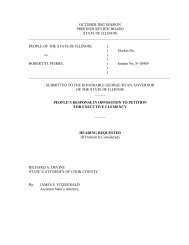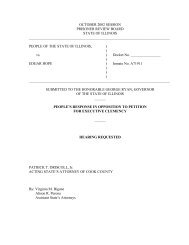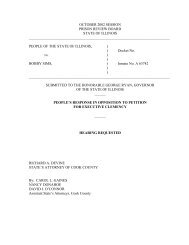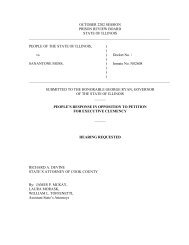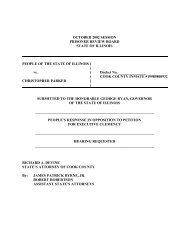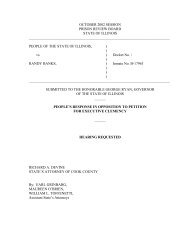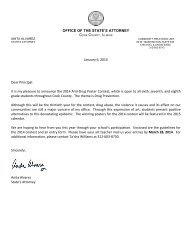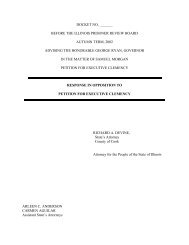Larry Scott - Cook County State's Attorney
Larry Scott - Cook County State's Attorney
Larry Scott - Cook County State's Attorney
Create successful ePaper yourself
Turn your PDF publications into a flip-book with our unique Google optimized e-Paper software.
Mental Illness<br />
As noted above, the jury rejected Petitioner's insanity defense and found him guilty of all the<br />
crimes charged in the indictment. The jury did decide he was guilty but mentally ill of the offense<br />
of aggravated criminal sexual assault, however. This verdict was apparently prompted by the<br />
evidence that Petitioner, a sexual sadist, bit off the victim's nipples and bit her vagina. But<br />
Petitioner should not urge this finding of mental illness as a basis for clemency relief. The Atkins<br />
decision is limited to claims of mental retardation, and the United States Supreme Court has never<br />
suggested it is unconstitutional to execute a mentally ill petitioner. The Illinois Supreme Court, in<br />
turn, has ruled that the law permits the execution of the mentally ill. People v. Crews, 122 Ill. 2d<br />
266 (1988). The Constitution bars only the execution of the insane, see Ford v. Wainwright, 477<br />
U.S. 399 (1986), and both a judge and jury have already found that Petitioner is not insane.<br />
Moreover, Petitioner has not identified the term "mental illness", has not shown why it applies to<br />
him, and has not taken into account the evidence already in the record that a person’s mental state<br />
can fluctuate over time and often improves with medication.<br />
Equally important, the State has always disputed Petitioner's evidence of his mental<br />
illness. Two of the <strong>State's</strong> witnesses, psychiatrists Tuteur and Cavanaugh, testified that Petitioner<br />
does not have any form of mental illness whatsoever. Moreover, the record repeatedly suggests<br />
that any mental confusion Petitioner may have had was due to his drug and alcohol addiction, and,<br />
as his own witness acknowledged, drug abuse can mimic signs of schizophrenia. (R. 879). When<br />
he interviewed members of Petitioner’s family, Dr. Cavanaugh learned that Petitioner drank at least<br />
a half a fifth of hard liquor a day, which Petitioner combined with greater or lesser amounts of<br />
beer. Cavanaugh also discovered that Petitioner injected potentially lethal amounts of “T’s and<br />
19


